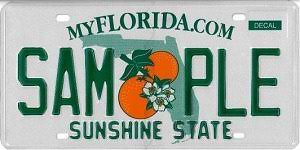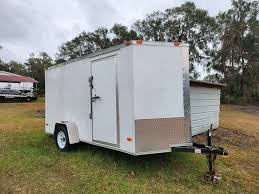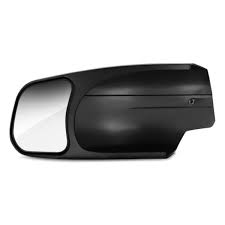Florida Trailer Laws and Regulations
If you often find yourself towing heavy loads around your state you probably have some idea of the state laws and rules that apply to do this. Some people may not be aware however that sometimes laws can differ state by state. This can mean you might be legal in one state but crossing the border you might well get pulled over for an infringement you were not expecting.
In this article we are going to look at the laws for Florida which may vary from the state you might be driving in from. There may also be regulations you were not aware of as a native to the state which might catch you out. So read on and let us try to keep you from costly tickets.
Do Trailers Need to Be Registered in Florida?
Under Florida law you must make sure to renew trailer tags and registration before they reach their expiration date. It is important to be aware that the expiration date of any trailer's tags and registration will be the birthday and month of the original owner listed on the registration.
This means that if you buy a new trailer it will be your birth details but if you purchase a used unit it will be the previous first owner's birth date details.

All trailers in Florida require registration and a license plate; however trailers with a net or empty weight over 2,000 lbs. also require a title. Florida residents who use their trailers on the state's roads must register their trailers. Non residents who use the state's roadways with a trailer for business must also register that with the state.
College or university students from out of state who are attending school in Florida may be eligible for a non-resident exemption. They will have to enroll in an accredited work-study program that is recognized by the state of Florida.
If applying for a Certificate of Title you will need the following:
- Manufacturer's Certificate of Origin
- Bill of Sale (including price, tax paid and any trade in allowance)
- Information Regarding and Lienholders
- Current Registration or Plate and Decal Number (if transferring a tag or license)
Florida General Towing Laws
These are general rules in Florida regarding towing that you might come foul of if you were not aware of them. Sometimes you may get away with an infringement of these rules because you did not know them but you can not assume this will be the case.
- The drawbar or connection between vehicles must be strong enough to pull the total weight of both vehicles and can not exceed 15 ft in length.
- If towing another vehicle with a chain, rope or cable a white flag or cloth no less than 12 inches square must be displayed on the connection.
- It is illegal for anyone to ride in or occupy a house trailer while it is being towed on public streets or highways.

Florida Trailer Dimension Rules
It is important to know the state laws governing the sizes of loads and trailers. You may need permits for some loads while others may not be allowed on certain types of roads.
- The total length of tow vehicle and trailer can not exceed 65 feet
- The maximum length for the trailer is not listed
- The maximum width for a trailer is 102 inches
- The maximum height of a trailer and load is 13 ft 6”
- These dimensions do not include any safety devices that may be required by state law
Florida Trailer Hitch and Signal Laws
There are laws in Florida that relate to the trailer hitch and safety signals displayed by the trailer. It is important to be aware of these laws as they are safety based and so may carry potentially large fines.
During any towing event using a trailer or semi trailer and a hitch set up there must also be safety chains, cables or another similar device to serve as a backup.
Florida Trailer Lighting Laws
When you are towing something that will obscure the rear lights of your tow vehicle it is important to be able to communicate your upcoming and present actions in the form of lights. This is why there are rules regarding trailer lighting.
Every car must have two visible red tail lamps at the rear which can be seen from 1,000 feet away. If the trailer obscures these lights then it must have lights of its own or be fitted with rigged lights.
Florida Speed Limits
When it comes to speed limits this varies and depends on the posted speeds of the specific area. You obviously should not exceed the posted speed limit in any area. When it comes to normal towing there are no specific different limits but it is expected that the speed is kept at a sensible level.
Florida Trailer Mirror Laws
The rules for mirrors in Florida are very specific in that the driver's rearview mirrors must be equipped with mirrors that give a clear at least 200 ft behind the vehicle. If your mirrors are obscured and do not offer this you may need to make adjustments.
If your view is compromised by the width of your load you may want to consider extensions to your existing mirrors. These can come in the form of mirrors that can slip over your existing rear views to improve your view past the load.

Florida Brake Laws
Trailers and Semi Trailers that have a gross weight of over 3,000 lbs. must be equipped with adequate brakes that affect all of the wheels.
- Every motor vehicle that is being operated on the highway must be fitted with brakes that are adequate to control the movement and to stop/hold such a vehicle in all conditions.
- All vehicles with the exception of semi trailers, trailers and pole trailers that are under 3,000 lbs. must have brakes that affect all four wheels.
- The total weight of trailer wheels can not exceed 40% of the towing vehicle's gross weight when connected
- Pole trailers weighing less than 3.000 lbs. made after Jan 1st 1972 do not require brakes
- Any vehicle equipped with air-controlled brakes must have two means of emergency application of the trailer brakes
Conclusion
There are a number of laws in Florida that pertain to towing and trailers which are designed to keep the roads and road users safe. The state's registration laws count for residents using Florida’s roads but also extend to out of state users who are using their trailers for business in the state.
Link To or Reference This Page
We spend a lot of time collecting, cleaning, merging, and formatting the data that is shown on the site to be as useful to you as possible.
If you found the data or information on this page useful in your research, please use the tool below to properly cite or reference Tow Ratings as the source. We appreciate your support!
-
<a href="http://towratings.net/blog/florida-trailer-laws-and-regulations/">Florida Trailer Laws and Regulations</a>
-
"Florida Trailer Laws and Regulations". Tow Ratings. Accessed on April 24, 2024. http://towratings.net/blog/florida-trailer-laws-and-regulations/.
-
"Florida Trailer Laws and Regulations". Tow Ratings, http://towratings.net/blog/florida-trailer-laws-and-regulations/. Accessed 24 April, 2024
-
Florida Trailer Laws and Regulations. Tow Ratings. Retrieved from http://towratings.net/blog/florida-trailer-laws-and-regulations/.